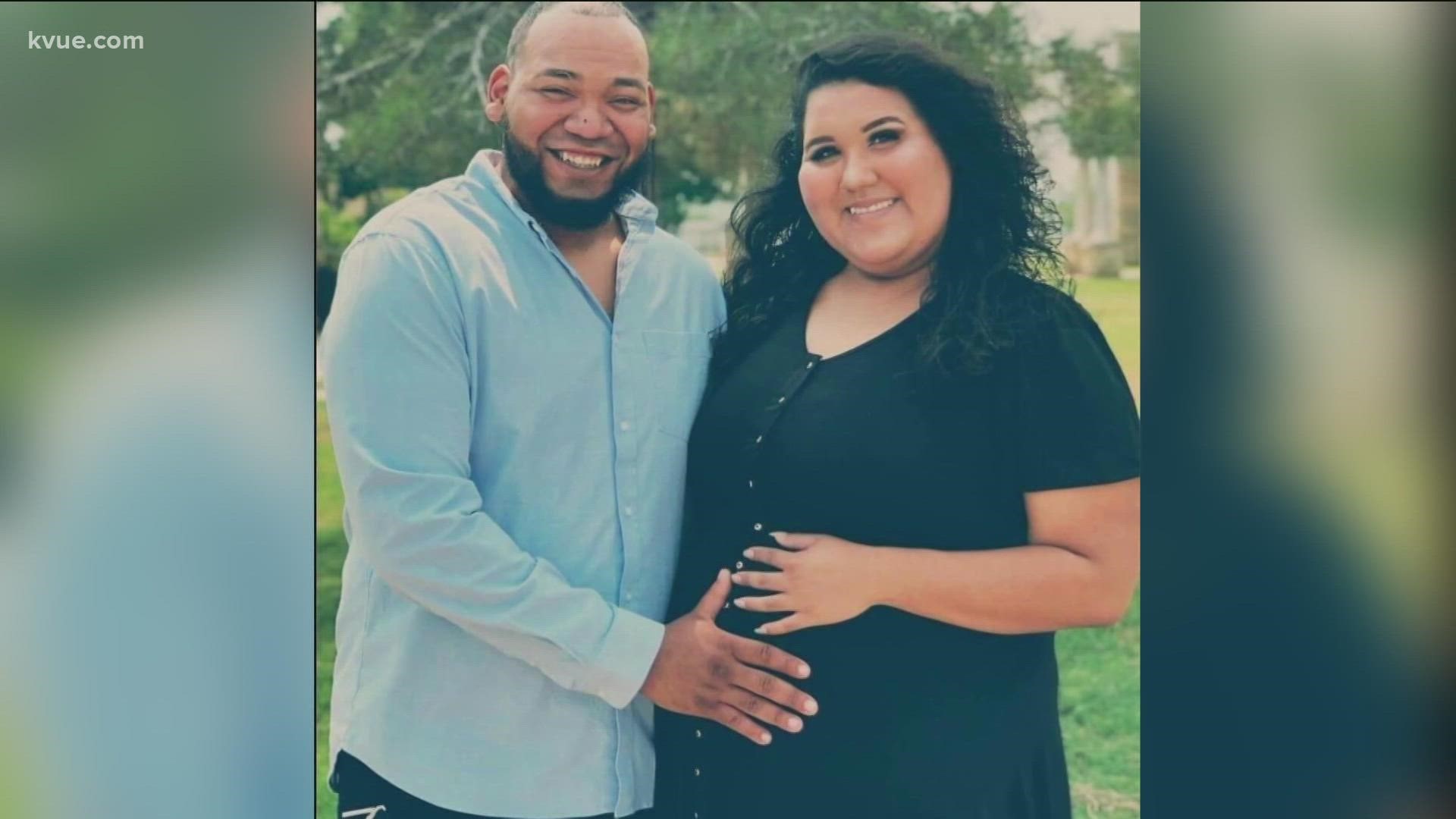AUSTIN, Texas — Pregnancy comes with enough to be nervous about. Then, add on a pandemic. Moms throughout the past year have dealt with this
Ceceliana Carrasco said she was taking all the precautions she could, "like any pregnant woman." However, she tested positive for COVID-19 in November and was hospitalized shortly after.
A day later, she was in the ICU.
"And I was just, like, freaking out. Like, what is going to happen to me? What is going to happen to my baby?" Carrasco said, saying she felt like she was on her death bed.
At 33 weeks pregnant, she was in the ICU with COVID-19 and pneumonia. Doctors flipped her on her stomach and then she had to be intubated.
"If you can just picture this pregnant woman, potentially third trimester, with a large, beautiful pregnant belly, they have to be ventilated face down," said Dr. Wright Bates, with Baylor Scott & White. "So then, in order for the mom to survive, they do what's called prone ventilation. The pregnant mom is ventilated face down on the bed. Tremendous stress on the pregnancy."
Dr. Bates said pregnant moms with COVID-19 face a myriad of potential problems.
"You have a dramatic risk of all the pregnancy complications. Those include miscarriage. Those include preterm delivery, and those include being very sick, requiring hospitalization, admission to intensive care unit and even in unfortunate cases, loss of the pregnancy," said Bates.
Bates said pregnant moms with COVID-19 are 20 times more likely to lose the baby.
"It is a very real concern that we're seeing," said Bates. "And I've heard people say, 'Well, if you look at the population, it's a small number that are dying,' but it's also far greater than anything else we see."
Carrasco found out she gave birth while she was intubated, but it was weeks before she could hold or even meet her baby boy.
"I was literally on my death bed, and I would tell anybody that – nobody would understand what I went through. It still haunts me to this day," she said, recalling the days in the ICU.
Carrasco gave birth before the vaccine was available. She said she would never tell another mom what to do, but she said she wishes she'd had the option to get vaccinated.
"Who doesn't want to meet their baby as soon as they're born?" she said, as she became choked up. "I think about it now. I'm never going to have that moment ever with him."
Dr. Bates encouraged people to get vaccinated.
"Pregnancy is an incredibly vulnerable time. And I applaud the women and couples that are saying, 'Wait a minute, is this safe for me? Should I risk the shot?' said Bates. "And there is no medication that is completely free of risk, whether you're taking a tablet for a headache or whether you're getting the COVID vaccine. There is concern, but what is incredibly clear is that any risk associated with the vaccine pales in comparison to the risk of getting [COVID-19]."
He said that moms who get vaccinated can pass the antibodies on to their baby through the placenta and through breast milk.
Bates also added that there is no evidence that the COVID-19 vaccine will negatively impact future pregnancies.
"The American Society of Reproductive Medicine has recommended that if you're trying to get pregnant, currently undergoing fertility treatment or early in pregnancy, you should have the vaccine," said Bates. "We know that COVID does impact not only menstrual cycles, but increases miscarriage, increased pregnancy loss. And there's even some evidence that male sexual function is negatively impacted."
Bates said COVID's negative impact on young, healthy, pregnant women is "unprecedented."
PEOPLE ARE ALSO READING:

